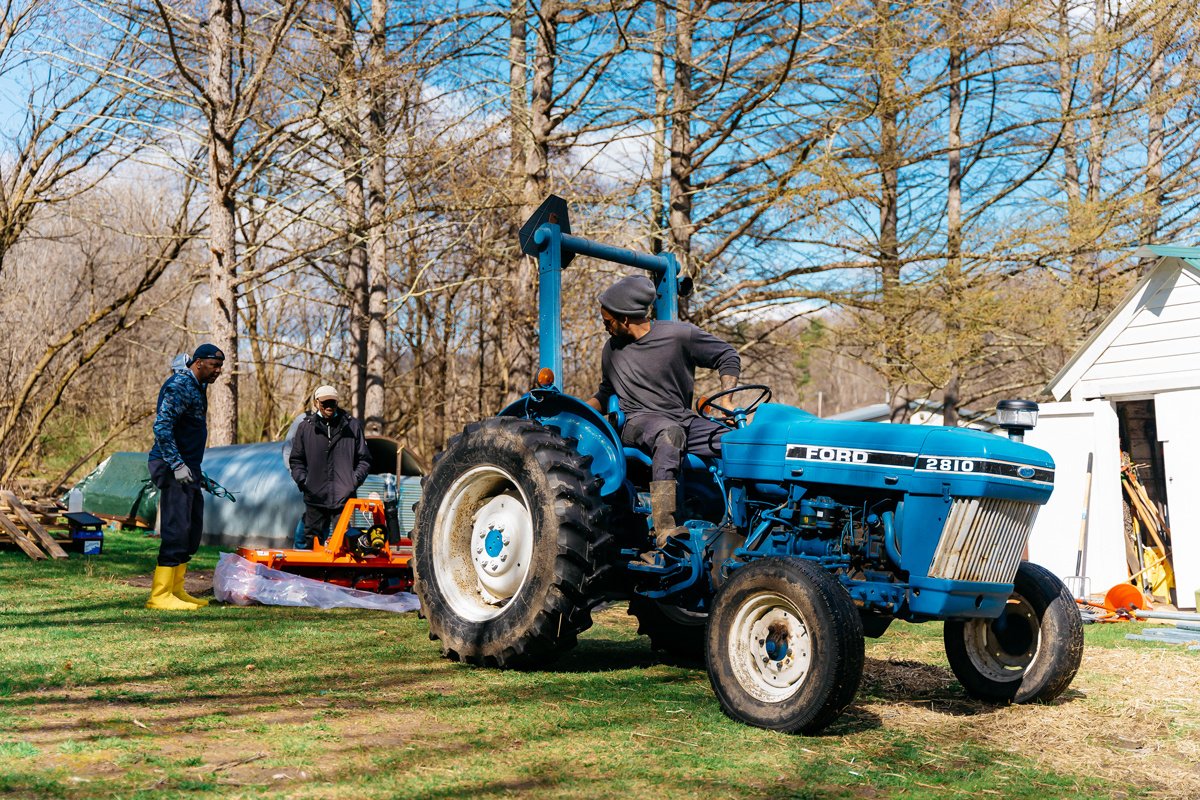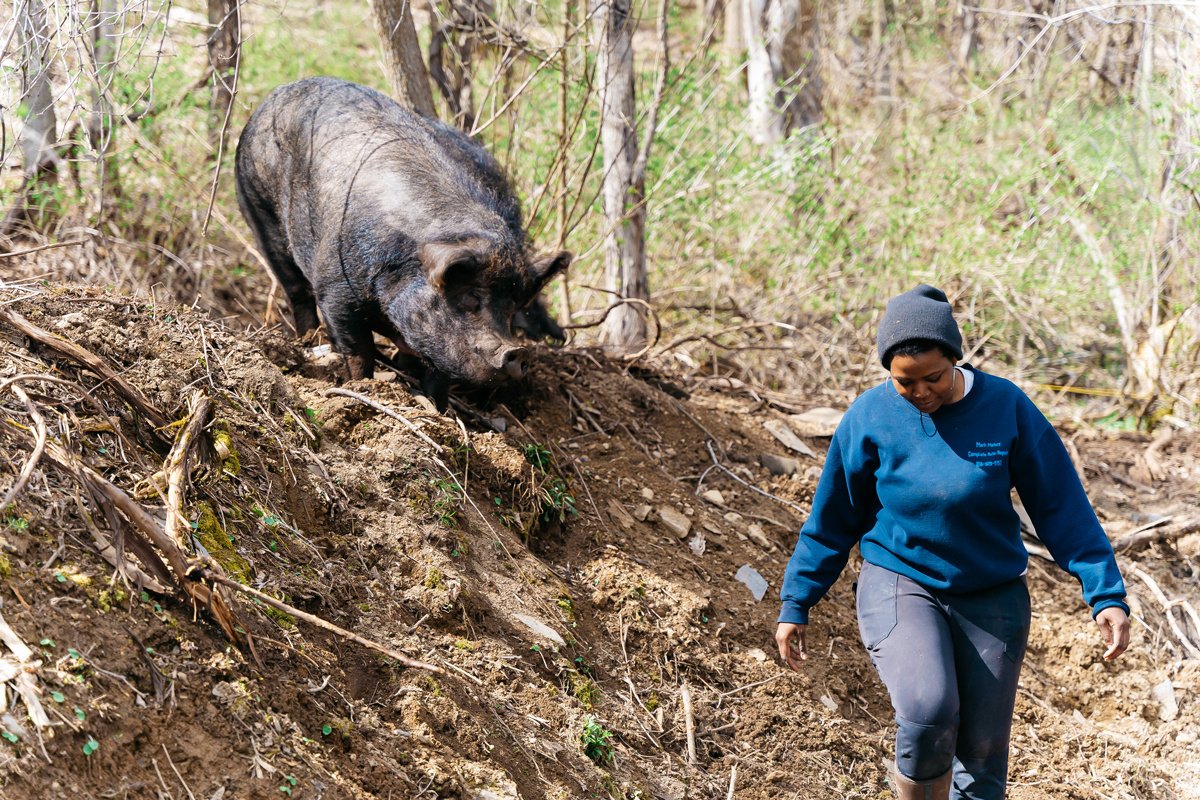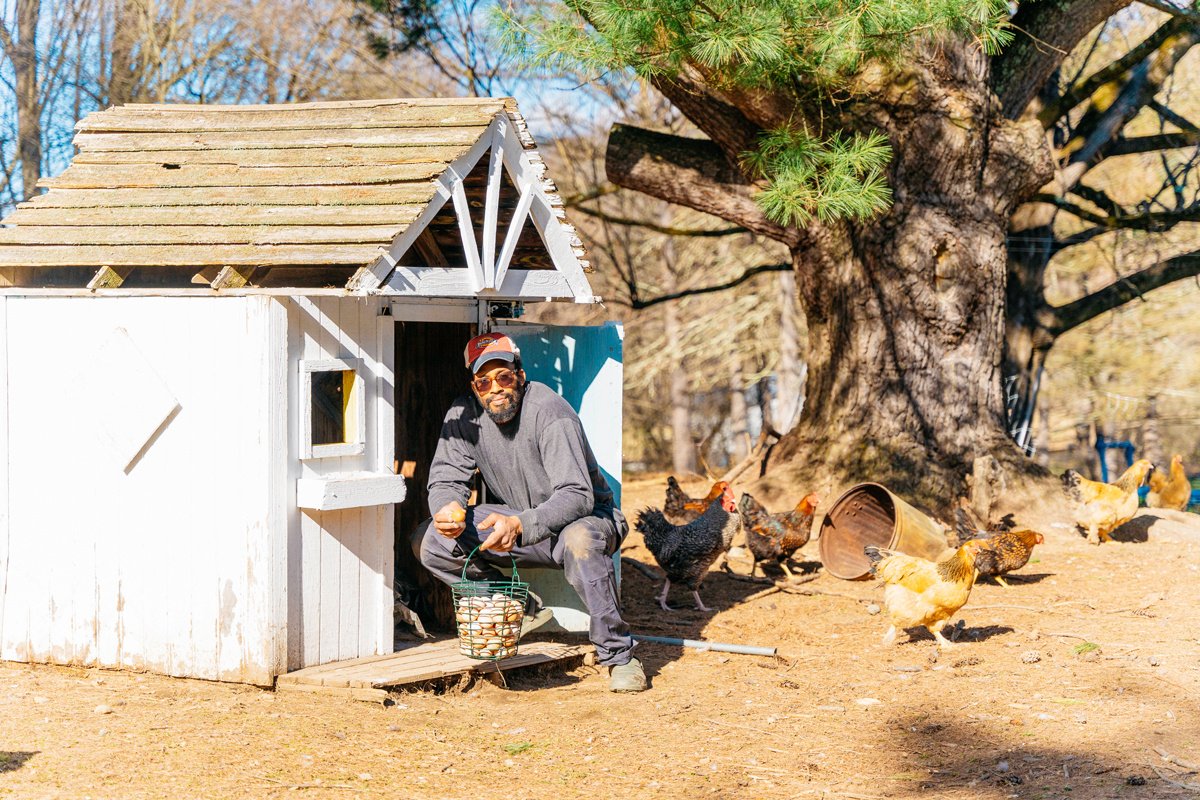Farming for social justice: the story of the Black Yard Farm Collective
May 18, 2022
7 mins
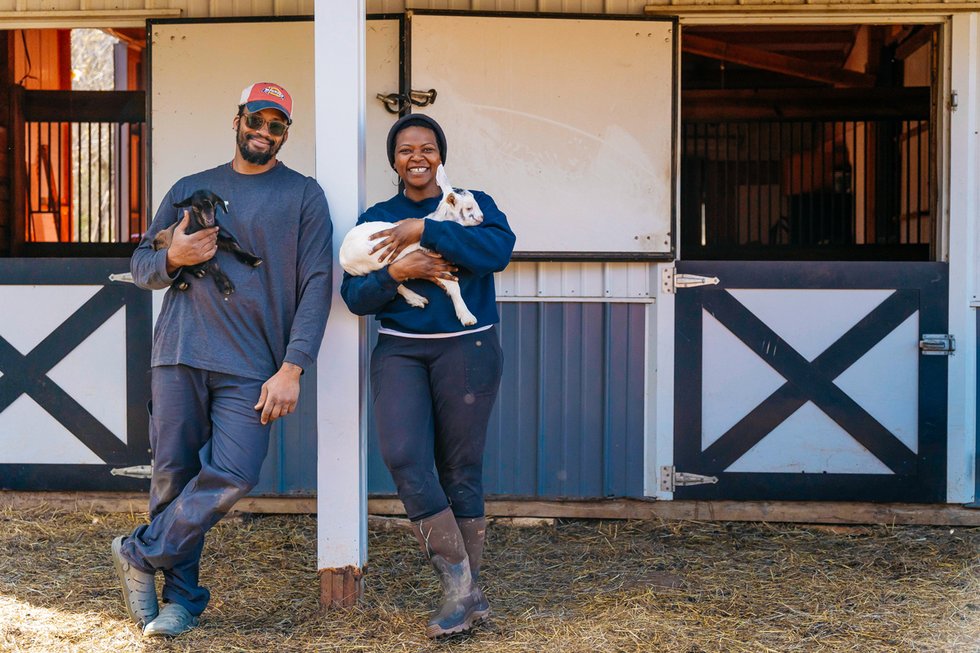
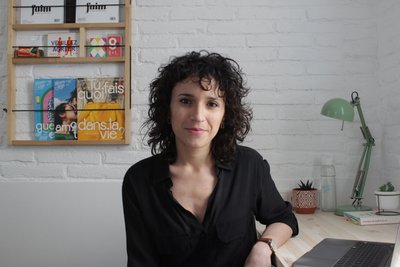
Editorial Coordinator Europe @ Welcome to the Jungle
Ashanti Williams and Arian Rivera could have met 10 years ago, when she was running a farmers’ market at her local community garden in the Bronx, and he was at classes there for a farm training program. But they didn’t. Instead, their paths crossed at a meeting in August 2020 organized by Farm School NYC and the Corbin Hill Food Project, which distributes fresh local produce to communities throughout New York City. Their conversation soon turned to starting up a food business and their common feelings about the lack of visible role models for black farmers. A month after that first meeting, in September 2020, they laid the foundations for what would become the Black Yard Farm Collective. Today, they co-own a 44-acre farm in Washington County (NY), where they grow more than 40 different varieties of vegetables and raise chickens, ducks, sheep, goats, and pigs. With their experience, they hope not only to inspire others but to teach them how to follow the same path.
Ashanti Williams is outside, the wooly hat on her head covered by the hood of her big coat. It has snowed heavily during the night and she’s making sure her sheep and goats have all they need to protect them from the cold. Winter is usually the time to order seeds for the growing season, or to work on spreadsheets and budgets, rather than doing chores around the farm — but this is not the case today. She knew firsthand that farming would be “a lot of hard work,” but she had experience in food-related businesses and had always dreamt of working with animals, so co-owning a farm was “like a happy medium.”
Arian Rivera’s path was very different. Though he loved cooking and grew up thinking he would one day have his own food business, in his twenties, he turned to office jobs in search of a better working environment and better pay than he was getting in restaurants. But his passion for food never left him and he started taking classes in the Farm School NYC program in the evening and on weekends. He even worked on farms for a while. “I always had an entrepreneurial desire to have my own food business, and I found farming along the way,” he says. “I was researching how to buy quality pork for the food truck I thought I was going to have, and in the process, I said, ‘You know what? Maybe you should just go run a farm instead, then you could be around all the good food you want.’ So we founded one.”
“There weren’t any black people telling their story”
Of course, running a farm was never going to be easy, and both Rivera and Williams identified a common issue in their previous experiences that had a strong impact on the way they approached the Black Yard Farm project. At the farms they had worked on, “there weren’t any black people in charge nor telling their story, and we felt like that was missing in our experience,” Williams explains. “One of the most challenging times was when I was working on a farm as an apprentice in 2020, while all the race discussions were going on in the media. Being in an organization where that wasn’t acknowledged, and no one even talked about it, felt isolating for me.”
“There weren’t any black people in charge nor telling their story, and we felt like that was missing in our experience.”
The situation had a significant impact on Williams’s mental health, and she decided to leave her apprenticeship. “The truth is that farming is so labor-intensive that having to deal with all that emotional stress alongside just seemed unnecessary,” she says. “There is also the fact that so much of the agricultural wealth that has been built in this country happened through slavery. So when that wasn’t even being talked about, it just made me feel like I didn’t belong in farming.”
Rivera had experienced that alienation and lack of support too. “In New York City,” he says, “I was surrounded by people who came from the same neighborhood I come from and who wanted to work towards food justice and social justice. So I said, ‘I want to go see how it’s done in the countryside.’ But when I first got to a farm, there was no talk about social justice or serving low-income communities. I was told, ‘You know, that’s not our mission, that’s not what we do here.’ Since I had always been taught that food justice and social justice go hand in hand, I felt disconnected. So I started trying to figure out where I could find people who shared the same values.”
“I had always been taught that food justice and social justice go hand in hand.”
Rivera’s feelings were exacerbated during the pandemic when he was working from home. “A lot of police brutality and violence was happening and people were talking about traumatic experiences they had had,” he says. “But we weren’t talking about any solutions or things we would do as an organization to change the narrative. And I just remember thinking, ‘This is BS. I’m working really hard for this company, they make a lot of money, they have power and influence, they could use their voice and they’re choosing not to.’ And ultimately I didn’t feel good about any of it. It seemed that if there was ever a good time to go back to a farm, this was it.”
Black farmers need representation
Williams and Rivera could only imagine how different their past experiences might have been if they had had the support of a community around them. Ultimately they decided to forge a new path for future generations of black farmers. Williams recalls one particularly empowering experience: the support she got at a fundraiser after quitting her apprenticeship when she revealed the trauma of her experience. “It inspired me to just stand in my truth and be the representation I needed in those spaces. It pushed me to want to start farming and do the work I’m doing now, focused on the experience of black people and unapologetic blackness.”
“It pushed me to want to start farming and do the work I’m doing now, focused on the experience of black people and unapologetic blackness.”
So when Williams and Rivera met at the Farm School NYC and Corbin Hill Food Project event, and heard there was funding available for a space where people could farm and learn about farming, their vision started to take shape. “We felt we needed to stress the importance of making space for black farmers and black land ownership,” Rivera says. “Because a lot of times we had been working with people who just came from very different backgrounds and didn’t culturally understand why we wanted to emphasize creating a safe space for black farmers. I think that’s ultimately what brought us together.”
“We had been working with people who just came from very different backgrounds and didn’t culturally understand why we wanted to emphasize creating a safe space for black farmers.”
And so the Black Yard Farm Collective was born — as a project not just about farming, but about creating those reference points that black people were missing in their personal experiences. Rivera remembers how Williams’s father and grandfather were the only people he could look up to who “looked like him,” and he hopes that he might one day “be one of those elders to somebody of the next generation.”
A collective story
The collective dimension of their project was crucial for Williams and Rivera. That’s why their farm functions as a cooperative: each of them owns 50% of the structure and, as other people join the project in the future, they will also become “owner-operators” in the business. “We want to continue developing our cooperative model so that we can have more members sharing the collective, but we also want to build a model that’s replicable so other people can use it as a reference to build their own,” Williams says.
The Black Yard Farm Collective is also about training others. Rivera explains how their educational program works: “We’re creating a formal curriculum this year. We want to host more school groups and we’re trying to produce videos so we can do things online. Then, in 2024, we’re going to host our first apprentices, who will be able to live and work on the farm for a season. We also give these people the opportunity to get the level of experience that they will need if they’re going to apply for a farm job,” Williams adds.
“We also give these people the opportunity to get the level of experience that they will need if they’re going to apply for a farm job.”
It’s not just farmers they need in their community, says Rivera. “There’s a lot of other people who support farming, like mechanics and carpenters and plumbers and the people who do the work that keeps farms running. So if we get more black folk and brown folk and Asian folk to move into these rural spaces, we won’t feel so isolated. We will be in a community with people who look like us and who have a shared experiences with us. For a lot of us, the energy that sustains us and gets us motivated to do the work has to do with the communities we’re connected to.”
The power of choice
So what are their ultimate objectives, you may ask? Rivera is clear on this: “Showing people what’s possible. The simple answer is that we’re creating a farm. We’re showing other people they can create a farm. And there’s power in that. But I think just to have representation, and to be here doing the work, and be a place for students to come to visit, a place for other farmers to come so we can spend time together and exchange ideas, to sell our food at a good price to people in the community… This is how we are creating more space for us.”
Offering quality products to the communities they’re serving, as well as sharing their knowledge on farming and working for social justice, will be key to the project for the next few years. The financial burden of living in the city takes away control from communities such as the ones they came from, in Harlem and the Bronx, says Williams. They want to give back the power to choose. “I feel like so much of being constricted in the city has to do with this lack of control, because if you’re not making a living wage, you can’t control where you’re living and you don’t control where your food comes from either,” Williams says. “I’m just trying to create a pathway for people to be able to make that choice.”
Photo: Welcome to the Jungle
Follow Welcome to the Jungle on Facebook, LinkedIn, and Instagram, and subscribe to our newsletter to get our latest articles every day!

More inspiration: Working for the planet

The ‘passion tax’ animal welfare workers are expected to pay
Workers in welfare and rescue organizations, zoos, and veterinary say their love for animals is often exploited, leading to burnout and high turnover
Mar 04, 2024
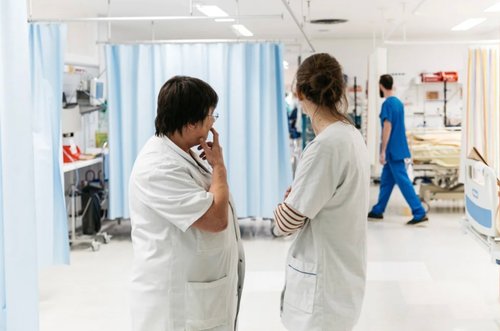
Healthcare industry emissions are a problem, but doctors can help
Medical professionals are working to address the greenhouse gas impact of their industry, from changing clinic practices to...
Feb 05, 2024
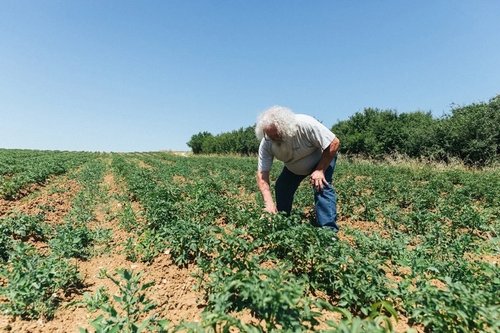
Here’s how to make work safer as climate change worsens heat stress
As though climate change didn't pose enough challenges, rising temperatures are also sapping workers' productivity and health
Aug 23, 2023

Sorting the green from the greenwashed: How sustainable is your employer?
A majority of Americans care about corporate sustainability. But how do you know if your company is walking its climate talk?
Mar 27, 2023
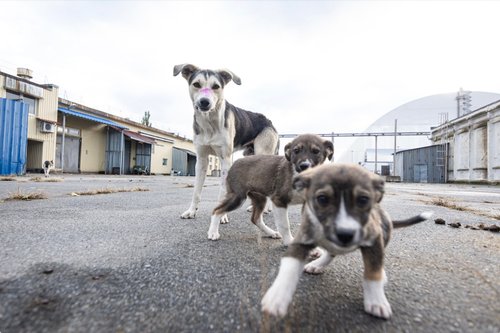
The wild dogs of Chernobyl: the story of the pups born on radioactive wasteland
What happened to the animals left behind after the nuclear disaster in Ukraine, and who are the people helping them?
Nov 16, 2022
The newsletter that does the job
Want to keep up with the latest articles? Twice a week you can receive stories, jobs, and tips in your inbox.

Looking for your next job?
Over 200,000 people have found a job with Welcome to the Jungle.
Explore jobs
